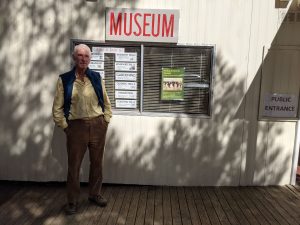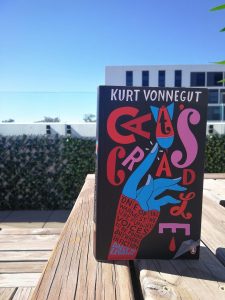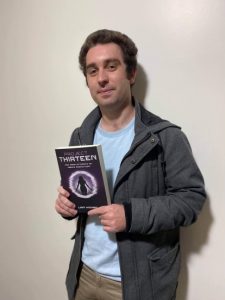Anthony Doerr’s All The Light We Cannot See Review
All the Light We Cannot See, written by Anthony Doerr is a magical and engrossing read. Brief chapters create a prismatic structure and a storyline that makes you not want to stop turning the page as you follow the childhood’s of Werner Pfennig from Germany and Marie-Laure LeBlanc from France in World War II.
Werner and Marie-Laure are just two of the millions engulfed in a conflict they neither understand nor ask for. As the story goes on, new relationships are introduced and old ones are split apart. The book manages to not only create touchingly complex relationships between characters but also successfully weave and switch between characters and forward and backward in time with great ease.
Marie-Laure is an exquisite construction. Blind by the age of six, she is shy, but courageous and resourceful with an unshaking love for her father Daniel LeBlanc, a master locksmith at the Museum of Natural History in Paris. As her sight finally fails, Marie-Laure’s father builds her a miniature model of Paris to help her to navigate around the city. As the Nazis edge nearer to Paris, Marie-Laure and her father escape to the coastal town of Saint-Malo to take refuge with her great-uncle Etienne. Unbeknownst to Marie-Laure, the Museum has entrusted her father with one of their greatest treasures, which allegedly has a curse that it bestows upon its owner.
In a parallel story, Werner, along with his sister Jutta are orphans living in a small German mining town. Jutta has a strong anti-fascist integrity, which as a reader, you hope will ultimately correct Werner’s own faulty moral compass. Through discovering a mysterious scientific radio transmission from France, Werner develops a thirst for knowledge and an astonishing skill at fixing radios, which quickly gains the attention of the Nazis. Because of this skill, Werner is relocated to a dark and remorseless school, aimed at developing elite children for the Reich.
As with every work of fiction, there are some weaknesses. The book has many aspects of genre fiction, despite the huge amount of research that Doerr has done; there is a potentially worrying balanced treatment of the Nazis and the French; and there are also some odd mistakes such as claiming Niels Bohr as a German.
In the closing chapter, Doerr rotates the puzzle once more and transports his novel to the present. One of his characters laments that ‘every hour, someone for whom the war was memory falls out of the world’. Perhaps this is the very essence of why reminding ourselves of the past is so important, so these people and souls who shaped our contemporary world do not disappear, but instead become part of the light we cannot see.





Be the first to comment!